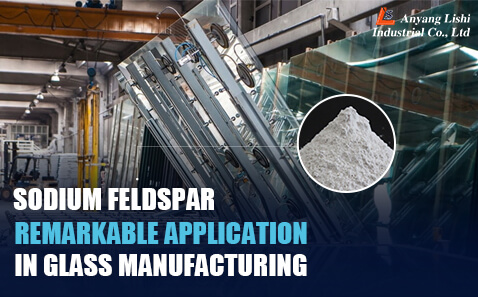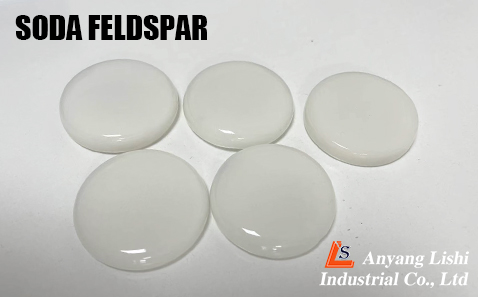
Soda feldspar plays a vital role in the glass manufacturing industry. Its unique properties and chemical composition make it an essential component in the production of various types of glass. In this section, we will explore the specific contributions of soda feldspar in the glass manufacturing process.

One of the primary reasons for using soda feldspar in glass manufacturing is its ability to lower the melting temperature of the raw materials. This is particularly important in the production of glass, as it reduces the energy required for the manufacturing process. By decreasing the melting point, manufacturers can save on energy costs, making the production process more efficient and environmentally friendly.
Soda feldspar also contributes to the overall clarity and quality of glass products. When included in the glass composition, it helps to reduce the presence of impurities and bubbles. This results in glass that is not only clear but also free from defects. The enhanced clarity and purity of soda feldspar-influenced glass make it suitable for various applications, including high-end glassware and optical lenses.
Stability is a crucial factor in glass manufacturing. Soda feldspar plays a role in stabilizing the chemical properties of glass, making it less prone to chemical reactions that can lead to deterioration over time. This stability ensures that glass products maintain their integrity and quality, even when exposed to various environmental conditions.

Soda feldspar’s versatility extends to its compatibility with various other raw materials used in glass production. Glass manufacturers can adjust the proportions of soda feldspar in their formulations to achieve specific characteristics in the final product. This adaptability is invaluable in creating glass with different properties, such as resistance to thermal expansion or improved durability.
While soda feldspar offers many benefits to glass manufacturing, it’s essential to consider the environmental impact of its extraction and use. Responsible mining practices and adherence to environmental regulations are critical to minimizing any adverse effects on the environment. Additionally, some glass manufacturers are exploring more sustainable alternatives and recycling methods to reduce the environmental footprint associated with soda feldspar.
In conclusion, soda feldspar is a crucial ingredient in glass manufacturing, with its ability to lower melting temperatures, enhance glass clarity, improve stability, and provide versatility in glass formulations. Its influence on the glass industry ensures the production of high-quality glass products for various applications. However, it’s essential to balance these advantages with responsible environmental practices to sustainably harness the benefits of soda feldspar in glass manufacturing.

Whether you have questions or you would just like to say hello,Contact us!
Call Anytime:
+86 15837207537Send E-mail:
info@lsakminerals.comAddress:
Anyang City , Henan Province, China.